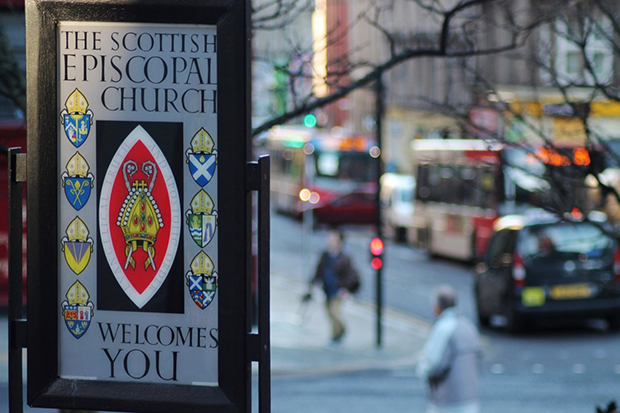THREE PARENTS?
The Rt Rev Dr Robert Gillies, Bishop of Aberdeen & Orkney, who was one of the first Lay Inspectors with the Human Fertilisation and Embryology Authority, has written the following reflection on the three person embryo debate, which was published in the Aberdeen Press & Journal on Thursday 5 February 2015.
On Tuesday 3rd February the House of Commons debated and voted to legislate in favour of a dramatic new process in embryo medicine.
Let’s be clear about what this is not. It is not in vitro fertilisation whereby couples unable to have a child of their own are assisted to do so. Nor is it embryo donation where the egg of a third party is given to a woman to enable her pregnancy to begin. Nor is it surrogacy where another woman carries a baby to term on behalf of another.
No, this is a new form of treatment. It is designed to help a number couples correct the risk of them having a child with genetic mitochondrial disorder.
The nucleus of a fertilised embryo from a couple at risk is separated from its own mitochondria and is placed in a new cell with new mitochondria donated by another woman. That means the original mitochondria carrying their fatal disorders are no longer present in the developing embryo.
Without this removal of defective genes and their effective replacement with good ones the child would die horribly. A mother from Teesside whose seven children all died from such disorders has spoken movingly of the tragedy and trauma that results.
By legislating in favour of this technique the UK is the first nation in the world to approve it. It will be life changing, indeed life transforming and life enabling, for those to whom this therapy can be offered.
What might be the arguments against this technique?
Would it mean that the child will have three parents? Thus far, in history, all children that have been born are the genetic product of two parents. Henceforth for a few, and following the application of this technique, there will have been three sources for the child’s ongoing life. What might be the consequences of this? The question behind this objection is an intriguing one, though does not, I believe, win the day.
From another perspective potential long term risks have been suggested; cancer maybe, other damaging genetic factors might also arise. But thereagain, this is the risk involved in all births and all sets of circumstances.
Meanwhile, arguments in favour of this technique have said that it is no different from organ donation whereby one receives, through surgical transplant, another’s heart or kidney or whatever. I don’t think that parallel holds as the beneficiary’s heritable genetic material isn’t being changed. Nor do I think, for the same reason, that there is a comparison with blood transfusions. So, even though I am in favour of this new development these are, I believe, weak arguments given to support it.
What then are the stronger arguments in favour of this new technique of third party involvement to alleviate inherited mitochondrial disorder? For an answer we must look to the consequences that will arise from its medical application.
Negatively, to begin with, the consequences of not allowing this procedure would mean that children will continue to be born, in many cases without the parents knowing they were at risk, with the mitochondrial disorders that this procedure is designed to remedy. For those families in these circumstances the early and tragic death of their child is inevitable. We now have the means of preventing such deaths by removing their cause.
Going ahead with this new treatment means that, by transferring the embryo’s nucleic DNA to a healthy cell such mitochondrial disorder can be rectified, babies will be born free of the condition. On these grounds I welcome this new procedure.
Meanwhile the child, that has been born following this procedure, will still have two genetic parents, for it was they who gave life to the embryo in the first place. The donation of the receiving cell from a third party has not added to the parentage. What it has done has given life to a baby who, without that donation, would die. This has to be good news.








